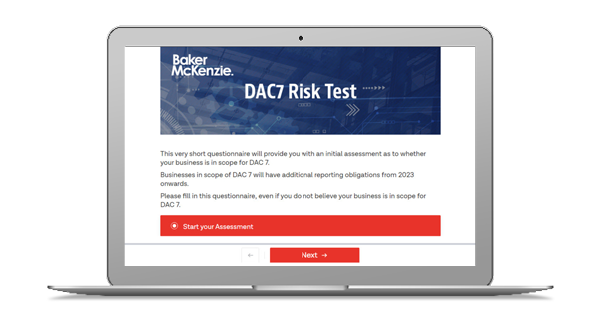In March 2021, the EU approved new reporting rules in a directive known as DAC7. The directive will require the operators of online platforms for the sale of goods and certain services, to collect, verify and share data on their sellers and their transactions concluded on the online platform. EU member states have until 31 December 2022 to implement DAC7 into national law. Certain platform operators will become a reporting platform and will need to start collecting and verifying data points in compliance with the DAC7 reporting requirements. The collected data points must be reported to the tax authorities of the relevant EU member state annually.
In
Austria
European Union: DAC7 Risk Test
by Julie Permeke, Olivier Van Baelen, Amar Hamouche, Diogo Oliveira, Ariane Calloud, Thierry Vialaneix, Oliver Pendred, Ana Royuela, Javier Blázquez, Isabel de Otaola, Javier Esain, Susanne Liebel-Kotz, Christopher Murrer, Francesco Pisciotta, Michele Santocchini, Dr. Gergely Riszter, Dr. Timea Bodrogi-Szabó, Philipp Stanek, Eliška Komínková, Katarzyna Kopczewska, Piotr Maksymiuk, Linnea Back, Jochen Meyer-Burow and Mirko L. Marinć
2 Mins Read


